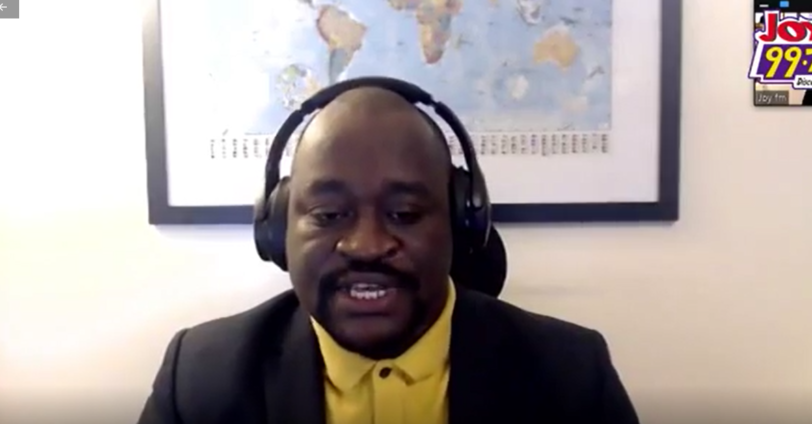Political Risk Analyst and a Senior Fellow at IMANI Africa has explained the "skirt and blouse" voting phenomenon in the December polls, where electorates in some constituencies voted for one party in the Presidential and another political party in the Parliamentary elections.
Dr Theo Acheampong explained that the electorate did so to register their displeasure with their sitting Members of Parliament.
"The specifics in terms of why people voted less for the parliamentary candidates and rather voter the incumbent government in, I think more broadly it comes to the point that citizens are expecting more in terms of what the parliamentary aspirant delivered on the ground."
"And in some point, you can read it as protest-voting in the sense that people are not happy with the job that parliamentarian delivered," he said.
His comments came as part of discussions on why a lot of incumbent MPs of the ruling New Patriotic Party (NPP) lost to their opponents in the 2020 elections.
The NPP lost about 33 parliamentary seats to the opposition National Democratic Congress (NDC) as well as an independent candidate.
Dr Theo Acheampong stated that this development should inform MPs that their electorates can no longer be taken for granted, adding that MPs are to ensure that the needs of their constituents are addressed during their term of office.
"Before the elections, parliamentarians go round making all sort of promises but failed to deliver on them."
"In one sense they voted for the president alright, but in another sense basically, they were just saying that we need the parliamentarians to be up and doing and see more in terms of delivering development at the grassroots," he added.
The Political Risk Analyst further stated that the development could also be as a result of some policies implemented by the government that Ghanaians were unhappy with.
He argued that although these policies may have been made at the executive level, MPs bear the brunt because they serve as representatives of the government and especially the political parties they represent at the constituency level.
He explained that for instance, most mining communities voted against the government because of its fight against illegal mining, popularly known in the country as 'galamsey.'
According to Dr Acheampong, the ruling party may have lost the bid in such communities because voters felt they had been denied their livelihoods.
"At the core, people don't see parliamentarians as people just going to parliament to make laws but they are party development agents to the extent that when constituents see realise that the MP or the government is not delivering on the development mandate, then the MP suffers for it."
"Irrespective of the fact that it takes the executive to deliver this then you would actually be punished for it so it's quite about expectation management and I think some of the parliamentary aspirants actually over promised and underdelivered on the development side of things," he said.
Latest Stories
-
Tesla shares tumble as Trump-Musk feud erupts
27 minutes -
Trump and Musk enter bitter feud – and Washington buckles up
39 minutes -
Footballer jailed for £600k drugs smuggling plot
50 minutes -
Lamine Yamal shines as Spain beat France in nine-goal thriller
1 hour -
Gauff battles past Keys to reach semi-finals
1 hour -
Gen Z aim to deny history-chasing Djokovic
1 hour -
Sabalenka takes out Swiatek to reach French Open final
2 hours -
Dumsor levy: Sulemana Braimah demands accountability for GH¢26bn fuel taxes paid in 2024
3 hours -
Dumsor Levy: Reset Ghana by ending waste, not taxing fuel, says Sulemana Braimah
3 hours -
$48m jute sack contract signed in Dec 2024 despite 110,000 unused bales – Acting Cocobod CEO
4 hours -
Acting CEO Randy Abbey says balancing the books will take time as Cocobod drowns in debt
4 hours -
‘We are chased every day’ – Cocobod boss paints bleak picture of mounting $33bn debt
5 hours -
Ken Ofori-Atta listed on INTERPOL Red Alert over “using public office for profit”
5 hours -
World Vision empowers health workers in Agortime Ziope with life-saving infection control training
5 hours -
Plan International Ghana launches She Leads Social Movement to sustain girls’ rights advocacy
5 hours

